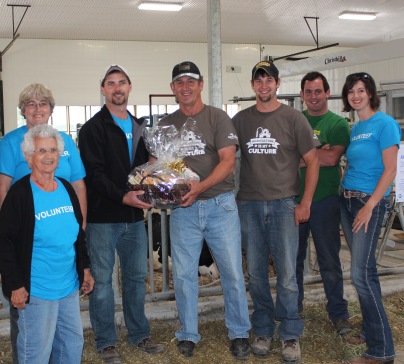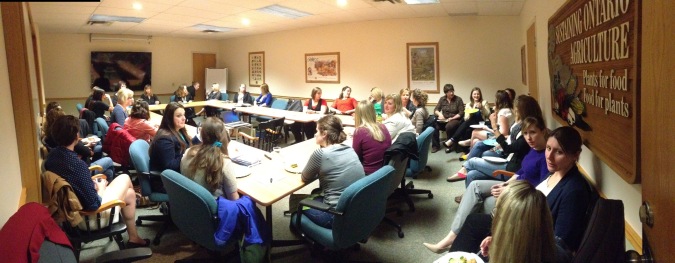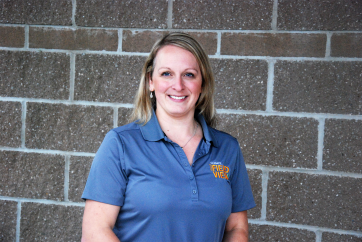 Please tell us a bit about yourself and your career path.
Please tell us a bit about yourself and your career path.
I grew up on a dairy farm that was a two-family operation. As kids we worked on the farm regularly and learned about hard work and responsibility. The cows still need to get milked if you’re sick! After high school, I attended the University of Guelph. Not knowing where it was going to take me, I decided to enroll in Agricultural Business because I knew there would always be agriculture and always be business – I enjoyed both. After graduating I started working in research with Monsanto on a new corn biotech trait for control of corn rootworm. Over the years I worked in many different areas across the organization including operations, marketing, management of our seed business and now starting a new business for the company in Canada as Climate Business Lead. Hard to believe I’m still here after almost 14 years!
Tell us about your role and what your “typical day” looks like.
Today, my role is titled Climate Business Lead for Canada. About three years ago Monsanto acquired the Climate Corporation and it continues to act as a subsidiary of it. I was asked to set up the business for Canada and bring it to life. Since I’m always up for a challenge, I’ve taken that on.
Here’s the more formal description: Denise is responsible for the Canadian launch and growth of the commercial business for The Climate Corporation, a subsidiary of Monsanto, which aims to help farmers increase yields and reduce risk through Climate FieldView™ insights and decision tools.
As for my typical day, I can tell you there is no typical day in my world…there hasn’t ever seemed to be one. One day I might be on 8 hours of video conference and the next out traveling to attend or speak at a conference. My calendar probably has more consistency year to year than day to day. That being said, my day generally starts before 8:30 and runs until 5 – except on travel days and times when I need to work later with some Pacific coast or other global counterparts.
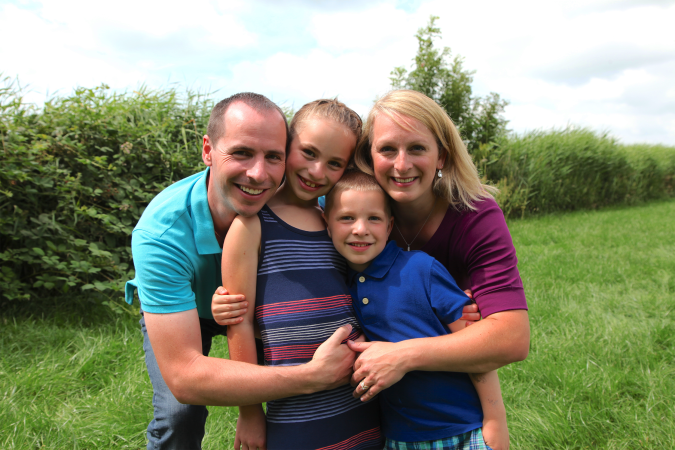
Denise with Husband and two children
How do you define personal success? What steps do you take to get there?
I personally find satisfaction from achieving goals. They may be the smallest of goals (like getting through my to-do list or making sure the kids take a healthy lunch to school) or accomplishing larger goals in conjunction with a team (like launching a new business). For me, it starts with having that goal in the first place and building a plan to get there. You have to know where you’re going so that even if you have to take twists and turns along the way, you always know which way to point. The other step I take is to prioritize. I say “I have” to take them because it would be impossible otherwise. Life and work demands for me are a constant triage and to prevent myself from going insane and keeping work and life harmony in check I have to prioritize. Sometimes this means letting things go, being “okay with okay.”
What’s the biggest professional/personal challenge you’ve had to face? And what did you learn from that experience?
I’ve gone through a lot of “firsts” for our company as a woman. First woman at our ECAN management team, first maternity leave for my boss (who’d been managing for 20 years) and in our commercial organization, first female business lead for a few. In all those cases, we had to learn as we went. It was a challenge because there wasn’t any precedence, no laid out path, no one already had the answer. However, it served as an opportunity to shape how it could be in a positive way for other women in our organization. I did learn along the way though, that as women we all have different desires and priorities and so although some precedence started to be built, it doesn’t mean that works for everyone.
Who is (or has been) your biggest influencer/mentor? What have you learned from them?
I have been fortunate to have had many positive influencers in my life. My parents and siblings taught me do it right the first time, even if it takes more work, what hard work means, giving hearts and supporting others wherever possible in addition to making sacrifices for others.
Managers and colleagues were folks who gave me confidence in myself when I didn’t, supporting my passion in making the “right” decisions and not always the easy or popular ones.
I did have one manager though that stood out. I would say he encompassed all of the things above and at the root of it all, he cared about people and the people in the organization. He made the largest impact on my career because he wanted me to take on a new opportunity that didn’t make sense to me – because I was a woman. His whole team was made up of men, in fact the organization was except for our administrator. I asked him “why on earth do you want me to be on your team? I just got married, I’m young (insinuating that I will most likely start a family soon) and I’m a woman?” His answer to me was, “I want your voice at the table and you can make valuable contributions.” If he had said anything else to me other than those words at that moment, I can tell you now I would not be doing what I am today…I remember it like it was yesterday even though it was 10 years ago.
I think the lesson is that sometimes, early in your career you don’t have enough experience to know what you are truly capable of but others see what you have to offer before you see it yourself. Those are times you need to trust that assessment made by someone else and trust yourself to know you can step up to the challenge.
Learning from our mistakes is an important, but sometimes tough, part of life. In the spirit of these profiles helping others, are you willing to share a mistake you made but taught you something important?
Many years ago, I was at my wits end, work and life harmony was completely out of sync and I didn’t speak up. I let it continue, communicating in a not so blunt way that I needed help and things needed to change. Problem was, I kept finding a way to deliver and make things work. Until one day, something else came to me and I erupted inside. I took a day to compose my thoughts and had a very intentional, blunt conversation about my issue. Thankfully it was heard, but I learned that I needed to be more blunt and intentional in topics that were important either for business or personal and not wait for an eruption point.
What’s the most burning question for you right now in your career ?
I often ask myself do I work to live or live to work? I enjoy work and a good challenge. At the same time my family is my number one priority. I still have runway left in my working life and I wonder if the answer to my question changes depending on where you’re at in your career, age or just different for everyone? I’d love to hear how others put that into perspective for themselves.
How do you define agriculture?
Wow, this is a tough one. I think of agriculture as a foundational building block for the world. It plays a critically important role for all of us to exist, sustain the earth and continue to evolve.
What do you think is the most important topic in agriculture right now? Or what should be?
I think one of the most important topics that everyone in agriculture is facing right now is the disconnect we have with folks not engaged in agriculture. Generally speaking, these folks don’t have a good handle of where their food comes from or what it takes to produce, nurture, process and deliver to the grocery store. The same folks are also influenced by small groups that work to discredit what farmers do or communicate inaccuracies and the challenge is that those not engaged in agriculture don’t know when the info is right and when it’s wrong, or do not have the energy to dig further to find the truth. As an industry, collaboratively, we are doing good things to have our voice heard, but this isn’t a small mountain to move.
What solutions, tools or processes do you think could be put in place to help advance Canadian women and specifically Canadian women in agriculture?
I think networking groups like AWN are important to help folks feel connected, share thoughts and ideas and help women not feel as though they’re on an island. I find similar networks within organizations can also be helpful – many times other women are trying to answer the same questions as you!
Do you have a piece of advice for young women starting their career in agriculture?
I would say believe in yourself and be willing to try. It’s okay not to know everything, but if you’re willing to try, learn or take risks, you haven’t left anything on the table.
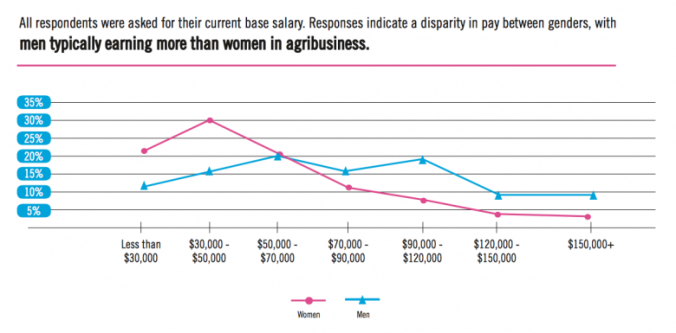
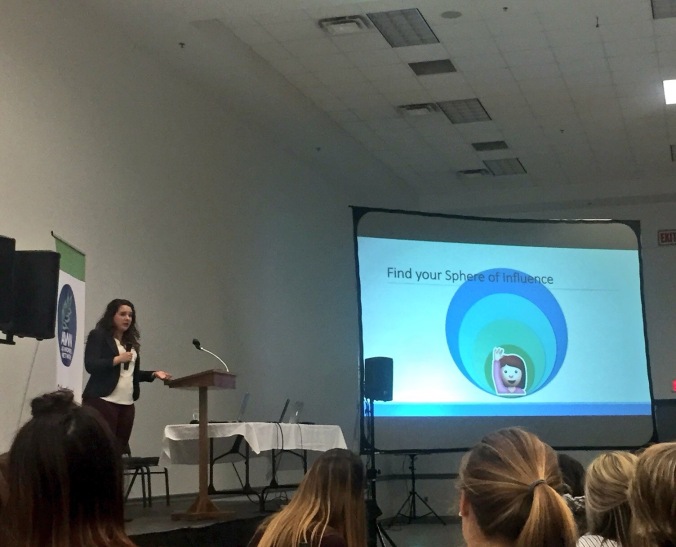 Cowan described the spheres of influence we each have and how we need focus first on ourselves, then slowly move outwards to change our behaviour and eventually, hopefully, attitudes around us will also change.
Cowan described the spheres of influence we each have and how we need focus first on ourselves, then slowly move outwards to change our behaviour and eventually, hopefully, attitudes around us will also change.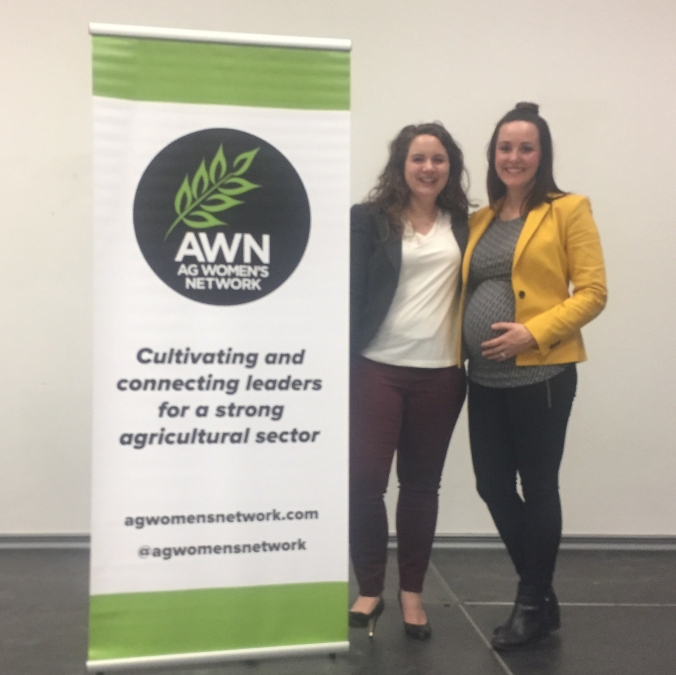

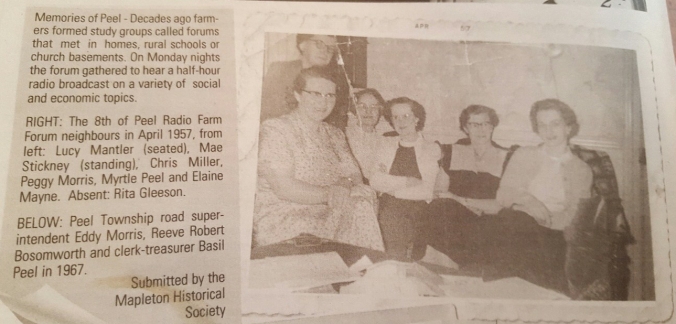
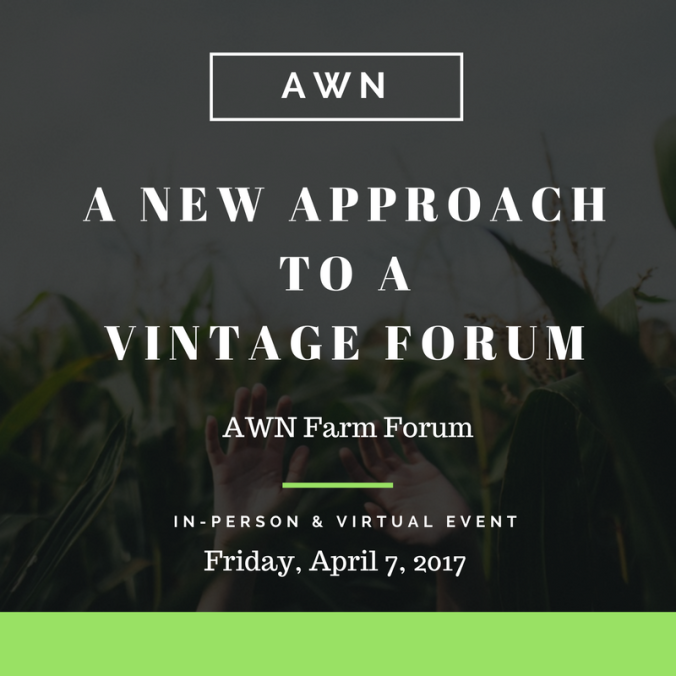
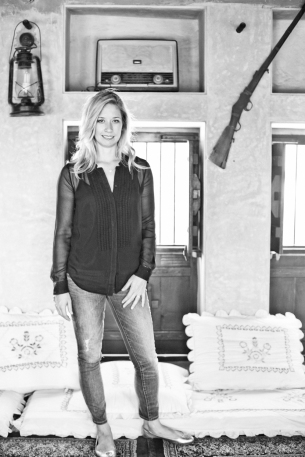 When Nicole first began her career she wasn’t interested in working in agriculture. She sought different experiences through internships and travelling to Latin America.
When Nicole first began her career she wasn’t interested in working in agriculture. She sought different experiences through internships and travelling to Latin America.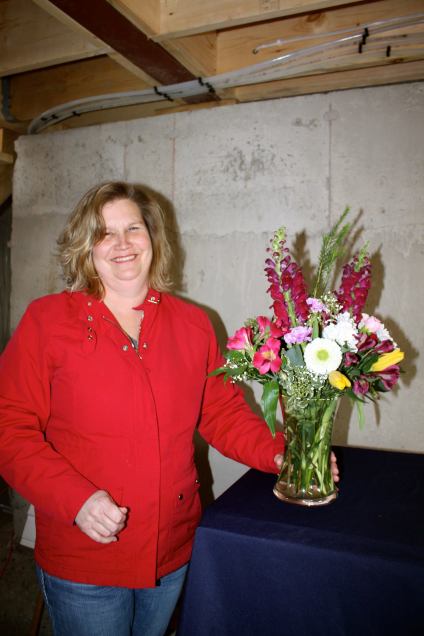 Beef farmer, florist, and DHI customer service representative are just a few of the titles Sarah Taylor can attach her name to. Wife, mother, and completely charming are a few more.
Beef farmer, florist, and DHI customer service representative are just a few of the titles Sarah Taylor can attach her name to. Wife, mother, and completely charming are a few more.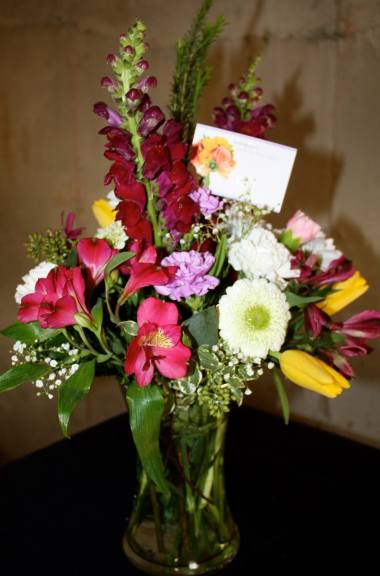 A: I started the business in August 2015 after a young girl asked me to do her wedding flowers from the varieties I grow here on the farm.
A: I started the business in August 2015 after a young girl asked me to do her wedding flowers from the varieties I grow here on the farm.  Q: What are brides looking for in flowers this year?
Q: What are brides looking for in flowers this year?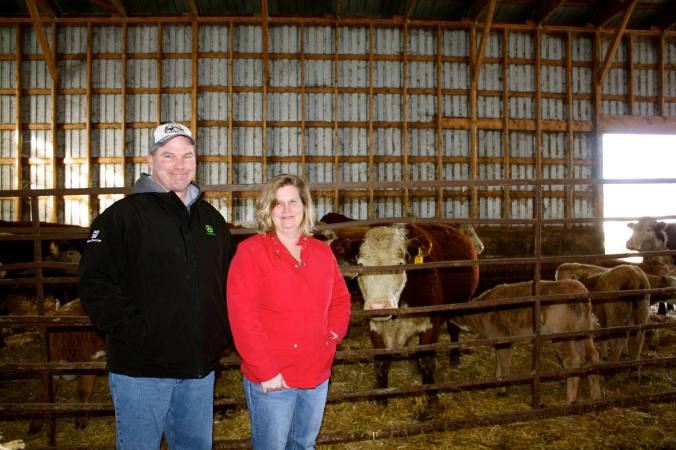
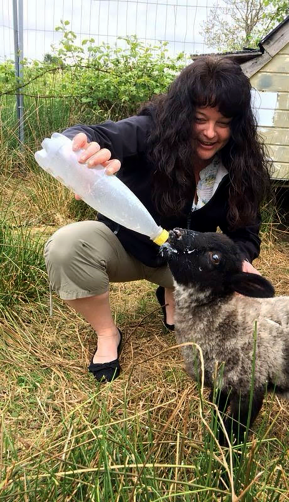 Please tell us a bit about yourself and your career path.
Please tell us a bit about yourself and your career path.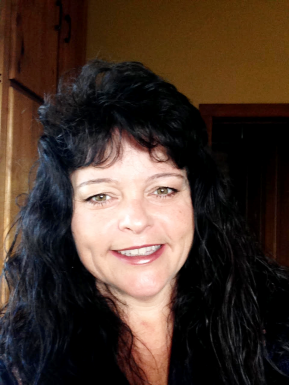 How do you define personal success?
How do you define personal success? 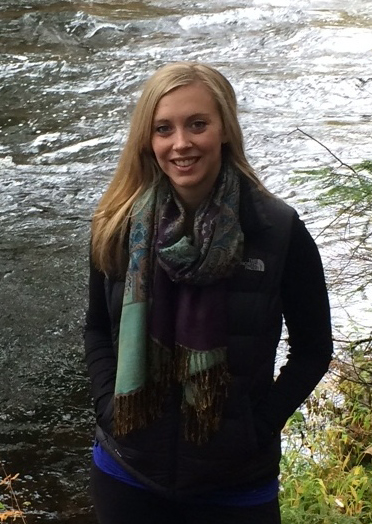 I grew up outside Tavistock, Ontario on a dairy farm. When I was 12, I started riding horses competitively. My dad made a major life changing decision when I was 13 to sell our quota and exit the industry. In my teen years, I was fortunate that my dad allowed me to convert our barn from cows to horses. We had a small handful of boarders, and during my University years, I taught riding lessons to neighbourhood kids.
I grew up outside Tavistock, Ontario on a dairy farm. When I was 12, I started riding horses competitively. My dad made a major life changing decision when I was 13 to sell our quota and exit the industry. In my teen years, I was fortunate that my dad allowed me to convert our barn from cows to horses. We had a small handful of boarders, and during my University years, I taught riding lessons to neighbourhood kids.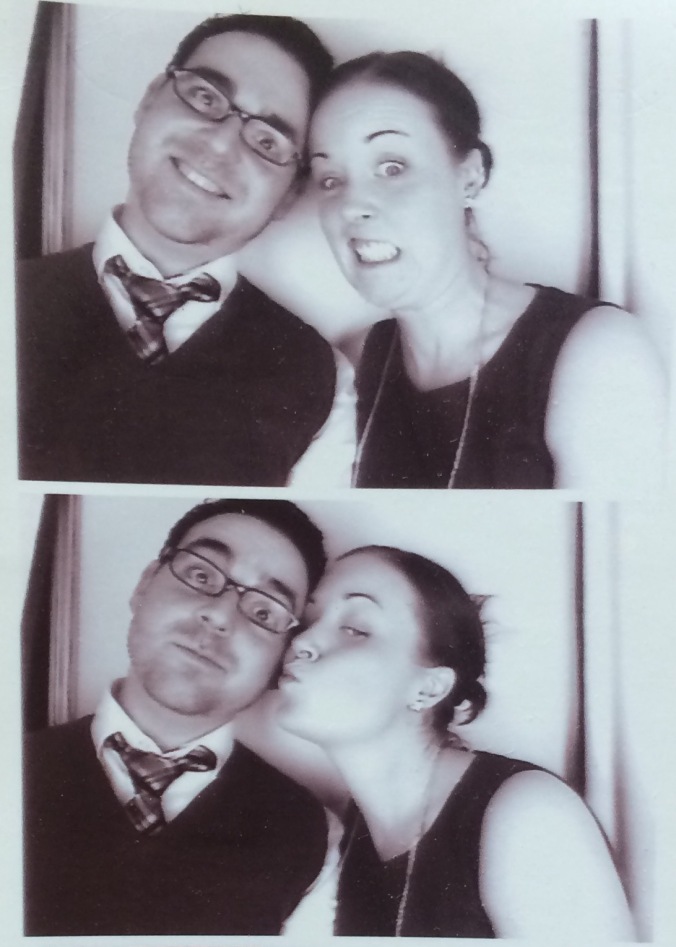 Joe and Mary Ann have been together for 17 years, they met when they were 18 and 16 respectively. Six years ago they joined Mary Ann’s brother Graham and her parents partnership and moved the cows to a new location after building a dairy barn. This is their recollection of what it has been like for them dealing with anxiety, depression and mood disorder.
Joe and Mary Ann have been together for 17 years, they met when they were 18 and 16 respectively. Six years ago they joined Mary Ann’s brother Graham and her parents partnership and moved the cows to a new location after building a dairy barn. This is their recollection of what it has been like for them dealing with anxiety, depression and mood disorder. 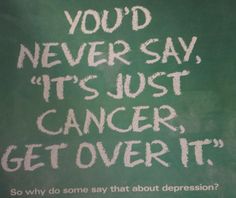
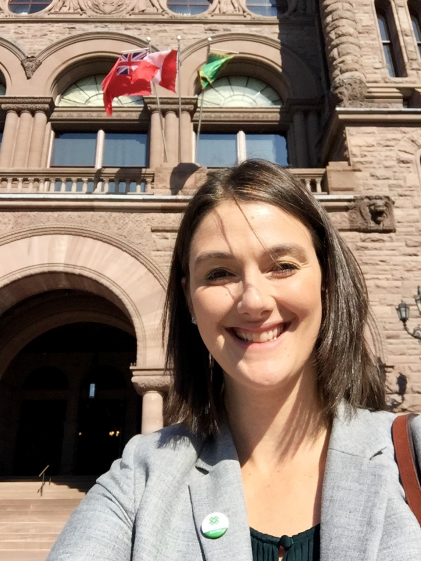 Please tell us a bit about yourself and your career path.
Please tell us a bit about yourself and your career path.